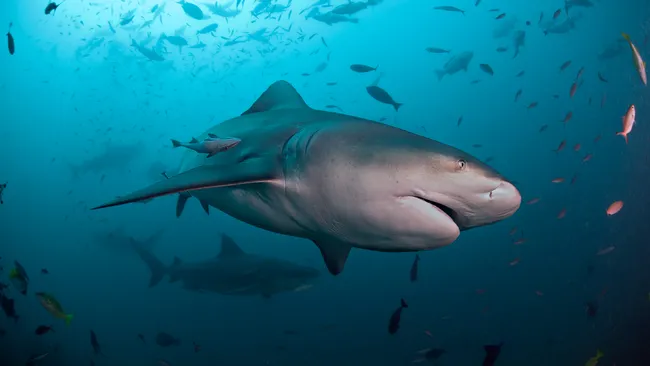Juvenile bull shark numbers have surged in Mobile Bay, Alabama, as waters warm up — but there’s no need for swimmers to fret, researchers assure us. Baby bull sharks are becoming more common sightings in Alabama’s waters, according to a recent study.
Researchers observed a five-fold increase in the number of bull sharks (Carcharhinus leucas) caught per hour between 2003 and 2020, as reported in a study published on March 14 in Scientific Reports. All the captured bull sharks were juveniles, suggesting that these young sharks find Mobile Bay’s sheltered waters ideal for growth and feeding.
Despite bull sharks being known for their assertiveness, beachgoers needn’t worry about an increase in shark bites due to their presence, explained lead author Lindsay Mullins, a fisheries scientist at Mississippi State University. Contrary to popular belief, sharks are not interested in humans.
However, they may feed on some of the animals caught in fishing gear, leading to fishermen noticing more juvenile bull sharks among their catches, Mullins noted.
Bull sharks thrive in various water types and can grow up to 11.5 feet (3.5 meters) long. They are commonly found in coastal, tropical, and subtropical waters, indicating their adaptability to warm temperatures, according to Mullins.
Analyzing data from the Alabama Department of Conservation and Natural Resources’ gillnet survey along Mobile Bay’s coastline, researchers identified 440 bull sharks captured over the study period. During this time, average sea surface temperatures in Mobile Bay rose from 72.1 to 73.4 degrees Fahrenheit (22.3 to 23 degrees Celsius). With global ocean temperatures on the rise, Mullins sees the ability of bull sharks to thrive in warmer waters as a positive sign.
The increased presence of sharks in Mobile Bay also suggests a healthy ecosystem, Mullins added. However, she cautioned that as temperatures continue to increase, the thriving shark population might face challenges. Mobile Bay’s bull shark population is relatively healthy, but globally, bull sharks are at risk of extinction, according to conservation organizations. Furthermore, all shark species are threatened by fishing activities and climate change.
